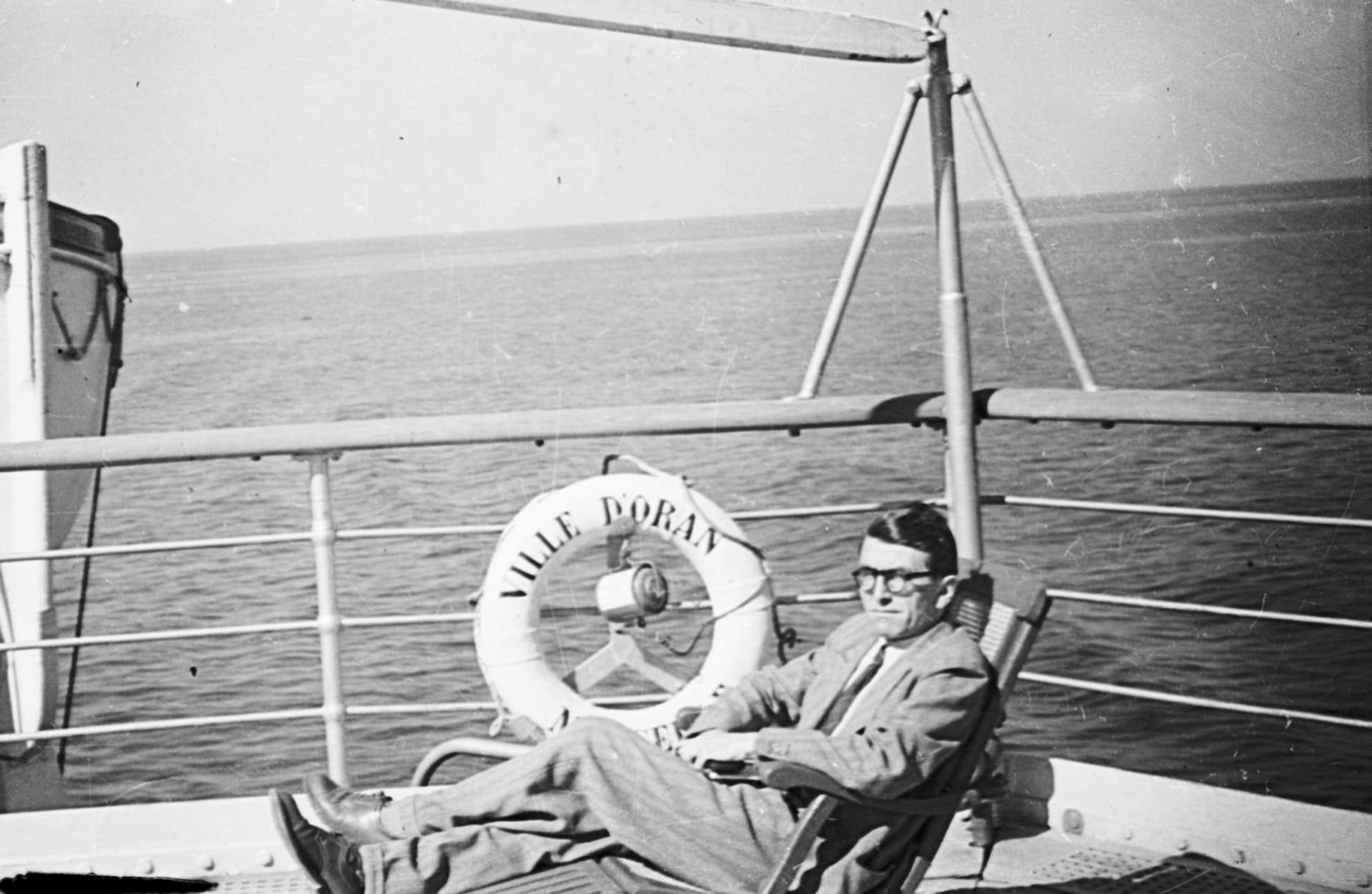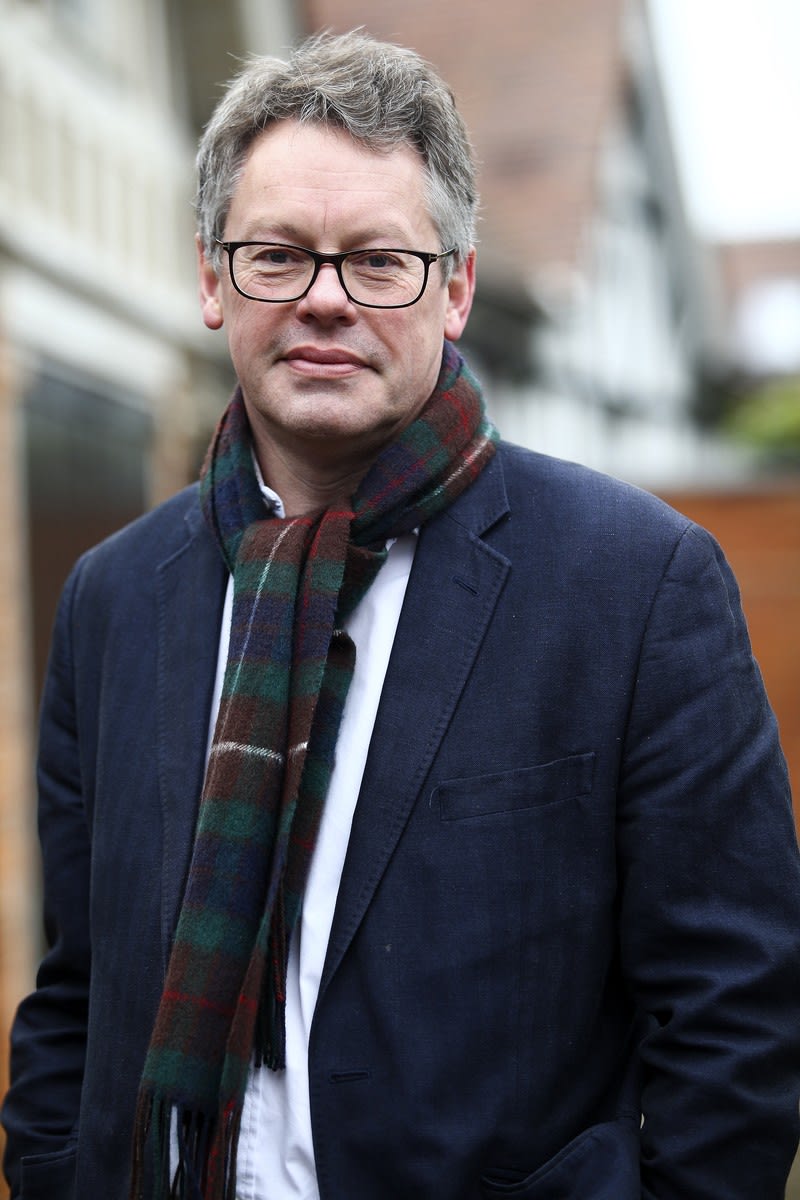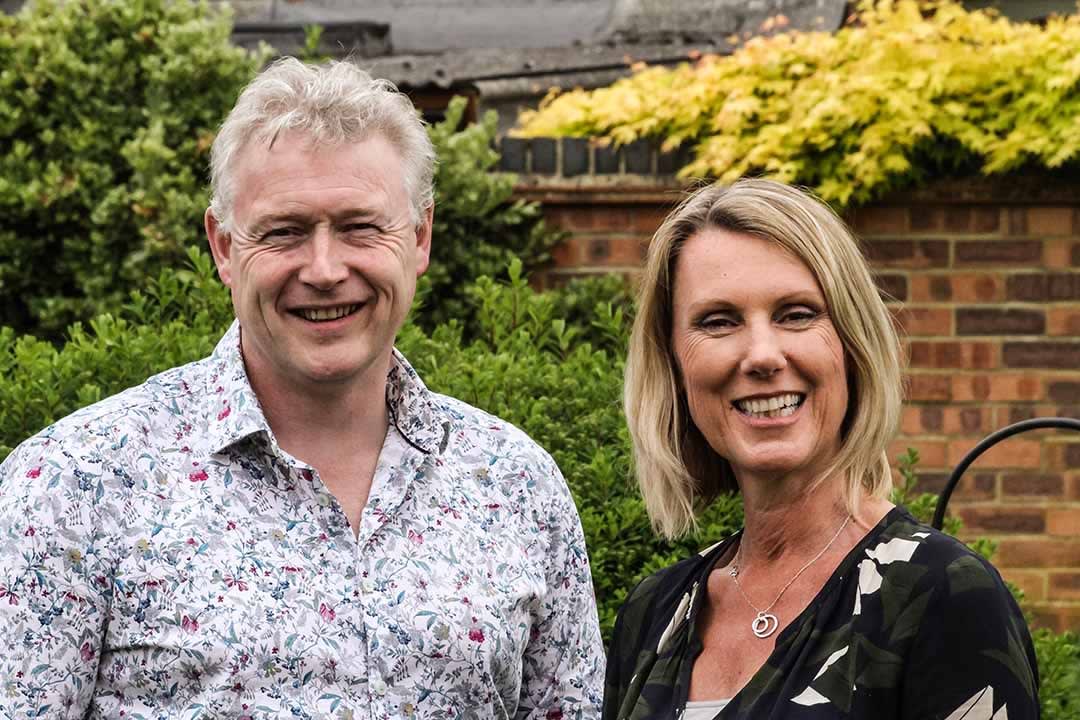The nephew and biographer of Alan Turing, Sir Dermot Turing talks 1950s intolerance, his uncle’s influence on today’s world, and why he doesn’t consider him the greatest codebreaking genius of all time.
“Oddly, the sun is shining today,” Sir Dermot Turing says in early February, from his Hertfordshire home. “It’s a very unexpected experience, I’m not quite sure how to cope with the shock.” Perhaps he could take the opportunity to do some gardening, one of the writer’s interests, though “it’s one of those things where my enthusiasm sort of outruns my available time. I think about it fondly more often than I engage in it.”
In St Albans, he’s roughly halfway between Oxford and Cambridge, in both of which he’s studied. Not wanting to overstate his ongoing involvement with University of Oxford, he explains the role of Bletchley Park Visiting Fellow at Kellogg College, “a splendid arrangement as far as I’m concerned because I really don’t have any significant duties. I get to call myself a Visiting Fellow of Kellogg College, Oxford which makes me feel very grand.” The speaker was granted the title due to being a trustee of Bletchley Park, the site of World War II codebreaking, “a reciprocal arrangement between Kellogg College and the Bletchley Park Trust; the idea was that one of the trustees would become a Bletchley Park Visiting Fellow and one of the Royal Fellows of Kellogg a trustee.” The latter position was filled by Andrew Martin, “an artificial intelligence professor. He brings an interesting perspective to things. As well as being a practical kind of guy, he also knows his stuff on AI, an area in which Bletchley Park continues to be interested.”
Prior to writing X Y & Z: The Real Story of How Enigma Was Broken, he was “very vaguely” aware that Polish codebreakers had somewhat laid the foundations for what the team at Bletchley Park achieved insofar as decoding the Enigma machine used by the Nazis. “Finding out more about that was very hard. There were a few things in academic journals and there were some out of date writings, but they typically focused on technical stuff, not about the people or how they came to be involved in the problem; what it was exactly that they had done and how significant it had been for the Bletchley Park folk.” His research revealed “it wasn’t just about the Polish codebreakers, it was about the international liaison between the French, the Poles, and in the final years the British – who came on as rather late entrants to the game.”
He found that his uncle, Alan Turing, employed at Bletchley Park, “had a serious leg-up” in his work on Enigma. “I’m not saying he didn’t do anything [but] most of what he did was actually development of ideas the Poles first came up with. Sorry for those people who want to believe Alan Turing was the greatest codebreaking genius of all time – I’m afraid I don’t subscribe to that theory. He wasn’t predominantly a codebreaker, he was a mathematician. He was also very imaginative which meant he was able to develop the Polish ideas in new and unforeseen ways, which made the [bombe] machine at Bletchley Park an extremely powerful instrument – far more powerful than anything the Poles had invented.” He isn’t trying to belittle Bletchley Park’s accomplishments, he says, “but what people perceive it to have done is all focused around Alan Turing: some solitary genius battling against the evil forces of the unimaginative establishment, and low and behold, 20 seconds before D-Day,” he apologises for the exaggeration, “he cracks the intractable Enigma problem all on his own and we save thousands of American lives. No.”
That’s the impression with which people might have left The Imitation Game, the Oscar-winning film starring Benedict Cumberbatch as his uncle. “That perception, if that’s what people have taken away from that movie, isn’t right.” The film also portrays him as unable to connect with his colleagues, but “that’s where he was most at home.” In conversations with those who worked with the mathematician, “he doesn’t come across as this difficult, argumentative, impossible person with social difficulties. He comes across as a good collegiate colleague with a slightly evil sense of humour, but somebody who these days we would say is a bit of a nerd, happier talking about technical stuff than things people would generally natter about in the pub. If they were talking down the pub about the opportunities for developing computing machinery to do amazing things, then he was fascinating and fun to be with.”
His uncle did once attend a sherry party hosted by Sir Dermot’s father, donning “creased, grubby trousers” held up with some sort of belt substitute, string or a tie perhaps. “He obviously had nothing to say to any of the people there making polite conversation, and so he just left after a bit, my father thought this was unspeakably rude. My sympathies are with Alan on this one. Yes, he should have dressed a bit better, he probably shouldn’t have turned up in the first place, but he probably felt he ought to.” The idea that he was socially untrained, he says, is “sort of half-true. Some people would have got a very different impression of him from others. It really is a matter of who you talk to.”
He highly rates the literary inspiration for the film, Andrew Hodges’ Alan Turing: The Enigma. “Some people find it a bit long and a bit technical, it’s not to everybody’s taste, but I think it’s brilliant. He wrote it in the early 1980s and I think it’s quite astonishing that it’s still the leading biography of Alan Turing.” Regarding praise for The Imitation Game, despite its inaccuracies, it is “a great movie” with good themes. It covers the question of how to use signals intelligence without compromising your source, albeit “in a slightly Hollywood-ised way”. It addresses how “people with unusual learning styles (phrases like autism and Asperger’s are anachronisms when applied to the 1940s because people hadn’t invented those terms then) can fit into the workplace; again, I’m not sure the portrayal by Benedict Cumberbatch is of Alan Turing at all – but it’s a valid theme.” Added to which, the 2014 picture looks at how Bletchley Park acquired resources, as well as exploring AI “and how challenging it was in the 1940s and 1950s to imagine that a machine could think.”
Alan Turing’s sexuality isn’t addressed in Sir Dermot’s latest book, in which his uncle only has a walk-on part. But it is written about in his biography of him. “You can’t write a book about Alan Turing without talking about that – well, you can,” he adds, for his grandmother did. He doesn’t think Turing – who underwent chemical castration following his 1952 conviction for gross indecency, and ended up killing himself – was “a victim of ill-treatment by the British state. I think he was the victim of ill treatment by an intolerant society. Society in the early 1950s was pretty horrible and very politically incorrect and intolerant of not just diversity on a sexual spectrum, but also on a racial and all sorts of other spectra.” In the month Turing was tried in Manchester, he tells me, dozens of similar cases took place, that being “the daily bread and butter business of the criminal courts in those days”. He reckons the state authorities tried to do the right thing by Turing. “His ex-colleagues from Bletchley Park, who were now GCHQ seniors, gave evidence in his defence, as did Max Newman who was his professor at University of Manchester, and an ex-Bletchley Park colleague as well. I think we should perhaps not blame the state for what social attitudes were – that didn’t make it any easier for him though.” In 2013, 60 years after being convicted, his uncle was given a posthumous royal pardon.
His influence lives on. “It’s a bit trite,” his nephew begins, “but I would suggest that all computer applications in some sense derive from Alan Turing’s idea that you could have a digital machine that could change its function according to how it was programmed – I don’t believe there’s anybody whose lives are untouched by computers at the minute. But also he was one of the pioneers of artificial intelligence,” he says, drawing attention to the 1948 paper, ‘Intelligent Machinery’, which Turing wrote on sabbatical leave. “He drew out circuitry which showed machines could actually learn from their experience and this was dismissed by his then boss as being a piece of science fiction fantasy and not having any practical application. And of course, machine learning’s at the heart of all sorts of things at the minute.” It’s not just in self-driving cars, but “simple things like Google Maps. How does Google Maps know that that half a mile up the road there’s a traffic queue?”
Though people might associate Bletchley Park with mystique and danger, this is not what surrounds his work. “Details of particular projects I slightly keep up my sleeve, simply because they may evolve in different fashions as they reach maturity, but there’s nothing particularly mysterious about it.” He’s not long back from Germany where he visited the political archives of the foreign ministry, which hold WWII documents about German codebreaking operations. “Not everybody gets a buzz out of looking at old WWII documents but these ones are fun,” he says recounting their history. On the allies’ 1945 invasion of Germany, these papers were boxed up and thrown to the bottom of a lake. It was only because the water was being dragged for the body of a drowned American serviceman, that they were discovered. “There are now water-stained, sometimes barely legible documents from 75 years ago that you can go and look at.” Ample visits to archives are perhaps “not to everybody’s taste. People will say I’m a geek so maybe I take after some more famous members of my family in that regard. But that’s all fine.”
X, Y & Z – The Real Story of How Enigma Was Broken by Dermot Turing (£20, The History Press).









